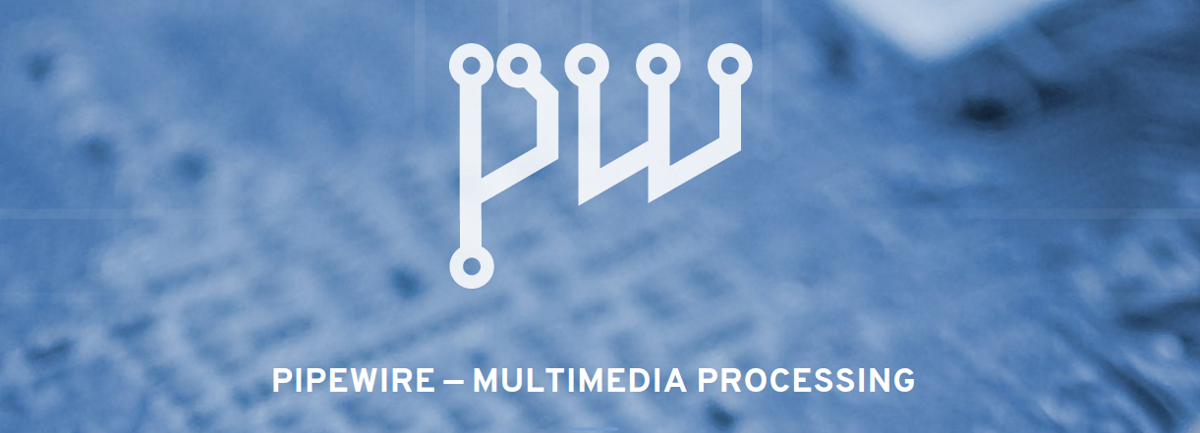
The release of the new version of the PipeWire 0.3.0 project has been announced, which develops as a new generation multimedia server, replacing PulseAudio. This new version highlights the redesign of the processing of threads and improvements in the libraries.
For those who are unfamiliar with PipeWire, you should know that this is a project that Extends the reach of PulseAudio when processing any multimedia stream and it can mix and redirect streams with video, plus it also provides options for managing video sources, such as video capture devices, webcams, or application-generated screen content.
For example, PipeWire makes it possible to organize multi-application collaboration with one webcam y solves problems with secure capture of screen contents and remote access to the screen in a Wayland environment.
Pipe Wire can also act as a sound server which provides minimal latency and functionality that combines the capabilities of PulseAudio and JACK, even considering the needs of professional sound processing systems, which PulseAudio cannot claim.
In addition, PipeWire offers an advanced security model that allows access control at the individual device level and specific transmissions, and simplifies the organization of the delivery of sound and video to and from isolated containers. One of the main goals is to support standalone applications in the Flatpak format and to work on the Wayland-based graphics stack.
The project is supported by Gnome and is already actively used in Fedora to record screencasting and screen sharing in Wayland-based environments.
PipeWire 0.3 Key New Features
In this new version it is mentioned that thread processing scheduler redesigned with which the changes made, allowed to start the intermediate layer to guarantee compatibility with the JACK sound server, whose performance is comparable to that of JACK2.
As well the API was reworked and declared stable and it is planned to make all additional changes to the API without breaking compatibility with existing applications.
PipeWire 0.3 includes a session manager which allows the user to manage the multimedia node graph in PipeWire, as well as add new streams. While the manager only provides the simplest set of basic features, it will be expanded or replaced in the future with a more functional and flexible option such as WirePlumber.
For its part, the included libraries have been improved to ensure compatibility with PulseAudio, JACK and ALSA, allowing PipeWire to be used with existing applications designed to work with other sound systems. The library for ALSA is almost fully operational, but the libraries for JACK and PulseAudio still need to be improved.
Finally, it is mentioned that some GStreamer plugins are included to interact with PipeWire. The pipewiresrc plug-in that uses PipeWire as the sound source works flawlessly in most situations. The pipewiresink plugin for outputting sound through PipeWire does not have some known issues yet.
PipeWire is not yet ready for a full PulseAudio and JACK replacement, but compatibility issues will take precedence in future releases.
How to install PipeWire on Ubuntu and derivatives?
For those who are interested in installing PipeWire on their systems, they should know that it is included within the Ubuntu repositories, but at the moment only version 0.2.7 and version are available this new version has not yet been included, so they would have to wait a few days for this to happen.
Installation through the repositories is with the following command:
sudo apt install pipewire
While, for those who prefer to install this new version now, they will have to compile the code in your system
For this we must download it with:
git clone https://github.com/PipeWire/pipewire.git
And we proceed to compile and install with:
./autogen.sh --prefix=$PREFIX make make install
You can test PipeWire with the following command:
make run
Finally, you can consult the documentation and other information at the following link.
the automatic translation to your limits 😉 "sudo apt installer le tuyau"